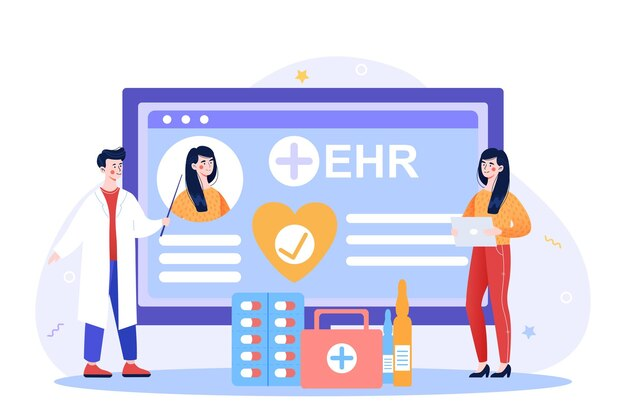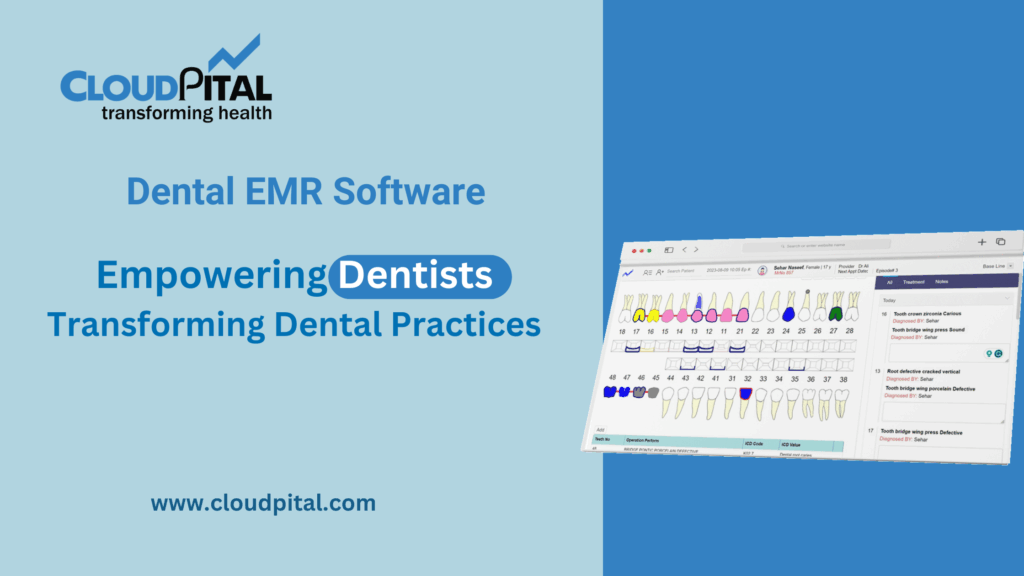Cloudpital # 1 is one of the top EHR System is set to dramatically change healthcare delivery in the coming years. EHRs will be more intuitive, efficient, and integral to patient care as technology advances. This article delves into the developments expected to happen in EHR systems and how they are going to change healthcare.
Click to Start Whatsapp Chatbot with Sales
Mobile: +966547315697
Email: sales@bilytica.com
Cloudpital # 1 EHR System

Enhanced Interoperability
The next generation of EHR System will centre on interoperability between different types of health care systems. This will mean that patient information is shared between providers, ensuring seamless continuation of care and elimination of redundant procedures. Deloitte expect the systems to be easier and efficient by 2030, allowing healthcare entities to have better data exchange.
Integration of Artificial Intelligence (AI) and Machine Learning
This is the integration of AI and machine learning into EHRs, and it is going to revolutionize clinical decision-making. It can analyze huge data sets that help predict analytics, discover possible health risks, and give suggestions for customized treatment plans. For example, AI-powered diagnostics will be helpful in early detection of diseases for better patient outcomes.
Enhanced Patient Engagement
Future EHR systems will come equipped with innovative patient engagement features like user-friendly portals and mobile applications. Such a platform will be able to make patients able to access their health records, schedule appointments, and communicate better with healthcare providers. Improved patient engagement will bring in better compliance to the treatment plans and even enhanced health results.
Mobility Integration
The growing reliance on mobile technology necessitates EHR System that are accessible via smartphones and tablets. Mobile integration allows healthcare providers to access patient data, update records in real-time, and communicate with colleagues while on the move, thereby increasing efficiency and responsiveness in patient care.
Advanced Data Analytics
The future of EHRs includes robust data analytics capabilities, enabling healthcare providers to derive actionable insights from patient data. These analytics can inform population health management, identify trends, and support evidence-based practice, ultimately leading to improved patient care.

Enhanced Security Measures
As cyber threats become more sophisticated, future Telehealth will prioritize advanced security protocols to protect sensitive patient information. This includes implementing encryption, multi-factor authentication, and continuous monitoring to safeguard data integrity and patient privacy.
Personalized Medicine Support
EHRs are expected to evolve to support personalized medicine by integrating genomic data and other individualized health information. This integration will enable healthcare providers to tailor treatments based on a patient’s unique genetic makeup, leading to more effective and targeted therapies.
Streamlined User Experience
Improving the user experience for healthcare providers is a critical focus for future EHR development. This includes designing intuitive interfaces, reducing data entry burdens through voice recognition and natural language processing, and customizing workflows to align with clinical practices. Such enhancements aim to reduce clinician burnout and increase productivity.
Telehealth Integration
The integration of telehealth functionalities into EHR systems is anticipated to become standard practice. This will allow for seamless virtual consultations, remote patient monitoring, and the incorporation of telemedicine data into patient records, thereby expanding access to care and improving patient convenience.
Blockchain Technology for Data Integrity
Blockchain technology is an innovative solution to improve data integrity and security within PMS. Blockchain, as a decentralized and immutable ledger of patient records, can be used to avoid unauthorized changes to the data, thus ensuring the accuracy and integrity of the information.
Conclusion
In conclusion, the future of EHR systems is geared towards creating a more connected, efficient, and patient-centered healthcare environment. By embracing these advancements, healthcare providers can improve care delivery, enhance patient outcomes, and navigate the evolving landscape of modern medicine.



